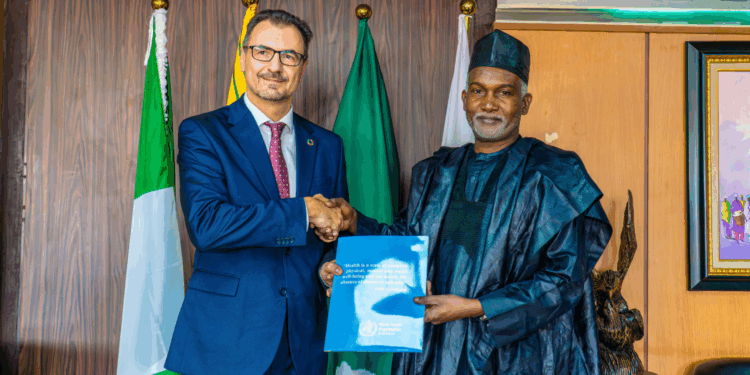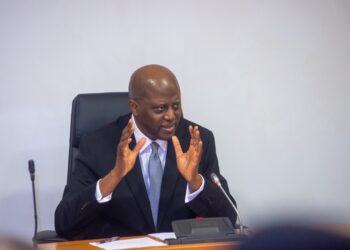The World Health Organization (WHO) has appointed Dr. Pavel Ursu as its new Country Representative to Nigeria. He officially presented his credentials to the Federal Ministry of Foreign Affairs on October 14, 2025, in Abuja.
In a statement posted on its website, the organization said Dr. Ursu’s appointment comes as Nigeria strengthens its health systems and pushes toward achieving universal health coverage.
“We welcome Dr. Ursu to Nigeria and look forward to deepening our collaboration with WHO under his leadership,” said Ambassador Yusuf Tuggar, Nigeria’s Minister of Foreign Affairs.
Background
Dr. Ursu brings more than 20 years of experience in public health leadership to his new role. He previously served as Director of the Department of Delivery for Impact at WHO Headquarters in Geneva, where he led initiatives to strengthen health systems and accelerate sustainable development goals.
Before that, he served as WHO Representative in Tajikistan (2010–2015) and Turkiye (2015–2020), where he received the WHO Director-General’s Award for his leadership during the Syrian refugee crisis. He also served as Acting Representative in Azerbaijan and Kazakhstan and as Head of WHO’s Country Office in Moldova.
A dual citizen of Romania and Moldova, Dr. Ursu is a physician who holds multiple postgraduate degrees, including a Master of Science and a Postgraduate Diploma in Public Health from the London School of Hygiene and Tropical Medicine, a master’s in health services management, and a Diploma in High Impact Leadership from the University of Cambridge.
Dr. Ursu’s vision for Nigeria
Dr. Ursu, in his remarks, commended Nigeria for major health achievements, including the eradication of wild poliovirus and the success of its integrated immunization campaign that reached over 106 million children.
“I am honoured to serve as WHO Representative to Nigeria and look forward to working closely with national authorities, development partners, and communities to advance health for all,” said Dr. Ursu.
“Nigeria’s strength lies in its people, innovation, and resolve to reform.WHO will focus on ensuring our cooperation translates into measurable improvements in people’s lives,” he added.
According to him, WHO’s largest country office in Africa is in Nigeria, a reflection of the country’s strategic role in regional and global health. He outlined six priority areas for deeper cooperation between WHO and the Nigerian government:
- Expanding domestic health financing and ensuring efficient, results-based spending.
- Improving access to quality, affordable health services through Universal Health Coverage.
- Building stronger emergency preparedness and health security systems.
- Advancing digital transformation and data-driven health decision-making
- Supporting local vaccine and medical technology production.
- Enhancing Nigeria’s engagement in global health diplomacy.





















